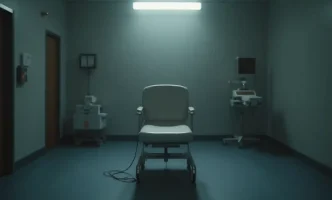In a harrowing case that has gripped Vietnam, a Hanoi court has sentenced 52-year-old Vu Van Vuong to death for the brutal murders of four family members. The killings, which took place over two days in mid-January 2025, have shocked the nation, raising profound questions about mental health, poverty, and the limits of justice in one of South East Asia’s most complex societies.
A Brutal Crime Unravels
On Tuesday, July 8, 2025, the Hanoi People’s Court delivered its verdict, condemning Vu Van Vuong for the murders of his 19-year-old daughter, 17-year-old son, wife, and 79-year-old mother. The crimes occurred in the family’s home in the former Phú Xuyên District of Hanoi, a once-rural area now absorbed into the sprawling capital’s outskirts. Over the course of January 15 and 16, Vuong strangled each victim, beginning with his daughter on the morning of the 15th and ending with his bedridden mother in the early hours of the following day. He hid their bodies under a bed, a chilling detail that emerged during court proceedings.
After committing the murders, Vuong wrote a letter—whose contents have not been publicly disclosed—and attempted to end his own life by overdosing on sleeping pills. When the attempt failed, he fled Hanoi by bus, traveling first to Đà Nẵng in central Vietnam and then to Vũng Tàu, a coastal city in the south. His journey ended on January 18 at Liên Trì Pagoda in Vũng Tàu, where he was arrested while reportedly holding a ritual for his victims. Police noted signs of severe depression and mental instability at the time of his arrest, though drug tests returned negative results.
A Confession Rooted in Despair
During the trial, Vuong admitted to all charges, offering a chilling rationale for his actions. He claimed he wanted to “free” his family from poverty, a statement that has sparked intense debate in Vietnam about the intersection of economic hardship and mental health. Prosecutors described his actions as “extremely cruel and inhumane,” arguing that the calculated nature of the killings—spanning two days and involving deliberate concealment of the bodies—demonstrated a level of premeditation that left no room for rehabilitation.
The court concurred, concluding that Vuong was “no longer capable of being reformed into a productive member of society.” Before the death sentence was pronounced, Vuong addressed the court with a final, haunting request. He expressed a desire to be executed soon, stating he wanted to “free himself.” While the exact date of the execution remains undisclosed, Vietnam’s legal system typically carries out such sentences by lethal injection, a practice adopted in 2011 to replace firing squads.
Poverty and Mental Health in Focus
This tragic case has cast a spotlight on deeper societal issues in Vietnam, a country of over 100 million people where rapid economic growth has often outpaced social safety nets. While Vietnam has made significant strides in reducing poverty—lifting millions out of destitution since the Đổi Mới economic reforms of the late 1980s—disparities remain stark, particularly in peri-urban areas like Phú Xuyên. Here, families often grapple with limited access to education, healthcare, and stable employment, pressures that can exacerbate mental health challenges.
Although no formal diagnosis was presented in court, police reports of Vuong’s “severe depression” at the time of his arrest have prompted calls for greater mental health awareness. Vietnam’s healthcare system, while expanding, still lacks sufficient resources for psychiatric care, with stigma often deterring individuals from seeking help. According to local reports, mental health services are concentrated in urban centers like Hanoi and Ho Chi Minh City, leaving rural and semi-rural communities underserved. Vuong’s case, though extreme, underscores the urgent need for accessible support systems to prevent such tragedies.
Moreover, Vuong’s stated motive—freeing his family from poverty—raises uncomfortable questions about economic inequality. In Vietnam, where the Communist Party of Vietnam (CPV) has prioritized industrial growth and foreign investment, the benefits of development have not always trickled down evenly. For families like Vuong’s, the daily struggle to survive can feel insurmountable, though no level of hardship can justify such violence. This case has ignited discussions on social media and among policymakers about strengthening welfare programs and community outreach to identify at-risk households before crises escalate.
The Death Penalty Debate
Vuong’s death sentence also reignites Vietnam’s long-standing debate over capital punishment. The country remains one of the few in South East Asia to retain the death penalty, primarily for severe crimes such as murder, drug trafficking, and corruption. While official execution figures are classified as state secrets, human rights organizations estimate that dozens are carried out annually, placing Vietnam among the world’s most frequent users of capital punishment.
Critics argue that the death penalty fails to address root causes like poverty and mental illness, serving only as retribution rather than prevention. Others, including many Vietnamese citizens who have followed Vuong’s case, view it as a necessary deterrent for heinous crimes. Public sentiment, as reflected in local media coverage, appears divided—some express sympathy for Vuong’s apparent mental state, while others demand justice for the victims, whose lives were cut short in such a brutal manner.
Under Vietnamese law, death sentences can be appealed, though it remains unclear whether Vuong intends to pursue this option given his expressed wish for a swift execution. The legal process also allows for presidential clemency, a rare occurrence typically reserved for cases with significant mitigating factors. Without further evidence of Vuong’s mental health history or external intervention, it is likely the sentence will stand.
A Community in Mourning
Beyond the courtroom, the impact of this tragedy reverberates through Hanoi and beyond. Neighbors and acquaintances of the Vuong family have expressed shock and grief, struggling to reconcile the image of a quiet, struggling household with the horrific events of January. Phú Xuyên, though administratively part of Hanoi, retains a close-knit, village-like atmosphere in many areas, where such violence feels particularly alien.
Local authorities have remained tight-lipped about support for the community in the wake of the murders, though there are unconfirmed reports of counseling services being offered to those directly affected. For now, the focus remains on the legal proceedings and the broader implications of Vuong’s actions. Memorials for the victims have been held privately, with little public information available about their lives—a reminder of the personal loss at the heart of this case.
Looking Ahead
As Vietnam grapples with the aftermath of this family tragedy, the questions it raises linger. How can a society balance justice with compassion in cases marked by mental distress and economic despair? What systemic changes are needed to prevent such acts of violence from occurring in the first place? Vuong’s death sentence may close one chapter, but the broader story of vulnerability and resilience in Vietnam remains unwritten.
For now, a nation mourns four lives lost under unthinkable circumstances, while a convicted man awaits his fate. Whether this case becomes a catalyst for change or a somber footnote in Vietnam’s history is a question only time will answer.















